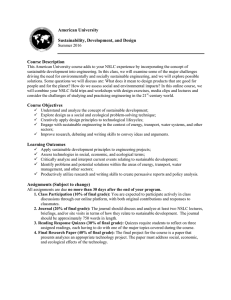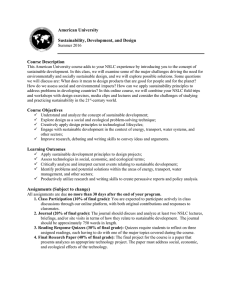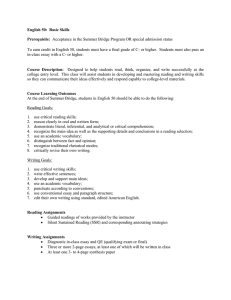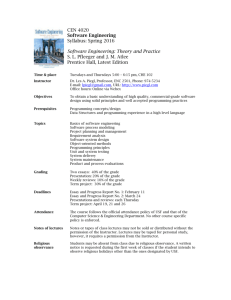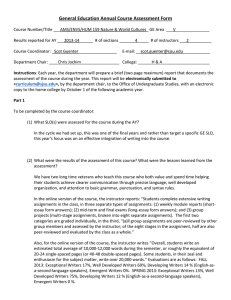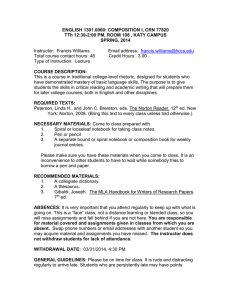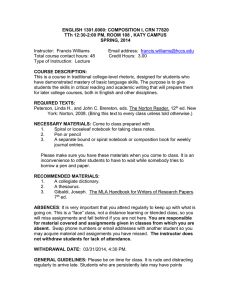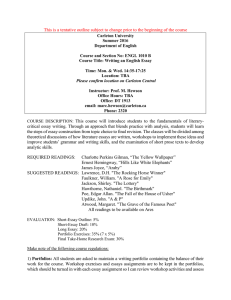American University School of International Service Leadership for an Interconnected World
advertisement
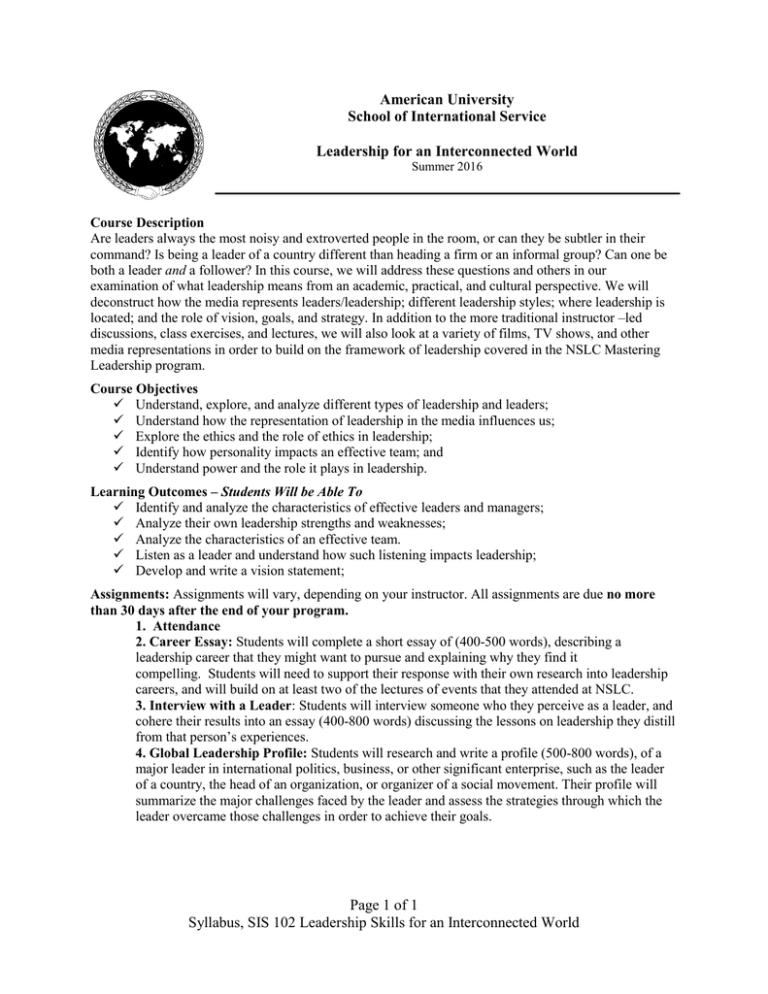
American University School of International Service Leadership for an Interconnected World Summer 2016 Course Description Are leaders always the most noisy and extroverted people in the room, or can they be subtler in their command? Is being a leader of a country different than heading a firm or an informal group? Can one be both a leader and a follower? In this course, we will address these questions and others in our examination of what leadership means from an academic, practical, and cultural perspective. We will deconstruct how the media represents leaders/leadership; different leadership styles; where leadership is located; and the role of vision, goals, and strategy. In addition to the more traditional instructor –led discussions, class exercises, and lectures, we will also look at a variety of films, TV shows, and other media representations in order to build on the framework of leadership covered in the NSLC Mastering Leadership program. Course Objectives Understand, explore, and analyze different types of leadership and leaders; Understand how the representation of leadership in the media influences us; Explore the ethics and the role of ethics in leadership; Identify how personality impacts an effective team; and Understand power and the role it plays in leadership. Learning Outcomes – Students Will be Able To Identify and analyze the characteristics of effective leaders and managers; Analyze their own leadership strengths and weaknesses; Analyze the characteristics of an effective team. Listen as a leader and understand how such listening impacts leadership; Develop and write a vision statement; Assignments: Assignments will vary, depending on your instructor. All assignments are due no more than 30 days after the end of your program. 1. Attendance 2. Career Essay: Students will complete a short essay of (400-500 words), describing a leadership career that they might want to pursue and explaining why they find it compelling. Students will need to support their response with their own research into leadership careers, and will build on at least two of the lectures of events that they attended at NSLC. 3. Interview with a Leader: Students will interview someone who they perceive as a leader, and cohere their results into an essay (400-800 words) discussing the lessons on leadership they distill from that person’s experiences. 4. Global Leadership Profile: Students will research and write a profile (500-800 words), of a major leader in international politics, business, or other significant enterprise, such as the leader of a country, the head of an organization, or organizer of a social movement. Their profile will summarize the major challenges faced by the leader and assess the strategies through which the leader overcame those challenges in order to achieve their goals. Page 1 of 1 Syllabus, SIS 102 Leadership Skills for an Interconnected World
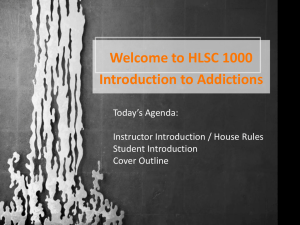
![Submission 68 [doc]](http://s3.studylib.net/store/data/008000926_1-fed8eecce2c352250fd5345b7293db49-300x300.png)
